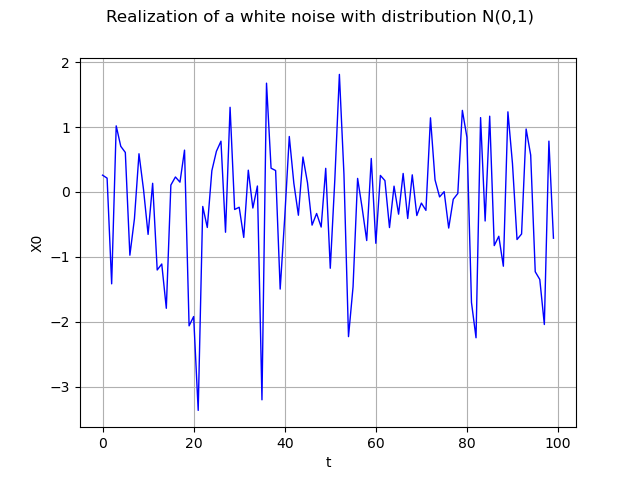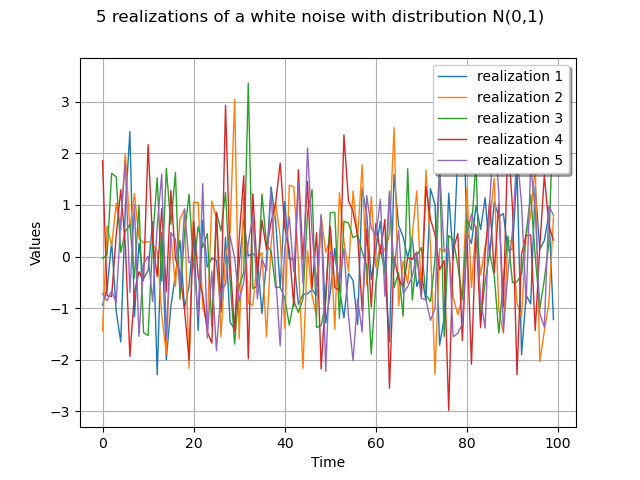Note
Click here to download the full example code
Create a white noise process¶
This example details how to create and manipulate a white noise.
A second order white noise
is a stochastic
process of dimension
such that the covariance function
where
is the covariance matrix of the process at
vertex
and
the Kroenecker function.
A process is a white noise if all finite family of
locations
,
is independent and
identically distributed.
The library proposes to model it through the object WhiteNoise defined on a mesh and a distribution with zero mean and finite standard deviation.
If the distribution has a mean different from zero, The library writes message to prevent the User and does not allow the creation of such a white noise.
from __future__ import print_function
import openturns as ot
import openturns.viewer as viewer
from matplotlib import pylab as plt
import math as m
ot.Log.Show(ot.Log.NONE)
Define the distribution
sigma = 1.0
dist = ot.Normal(0.0, sigma)
Define the mesh
tgrid = ot.RegularGrid(0.0, 1.0, 100)
Create the process
process = ot.WhiteNoise(dist, tgrid)
process
WhiteNoise(Normal(mu = 0, sigma = 1))
Draw a realization
realization = process.getRealization()
graph = realization.drawMarginal(0)
graph.setTitle('Realization of a white noise with distribution N(0,1)')
view = viewer.View(graph)

Draw a sample
sample = process.getSample(5)
graph = sample.drawMarginal(0)
graph.setTitle(str(sample.getSize()) + ' realizations of a white noise with distribution N(0,1)')
for k in range(sample.getSize()):
drawable = graph.getDrawable(k)
drawable.setLegend('realization ' + str(k+1))
graph.setDrawable(drawable, k)
view = viewer.View(graph)
plt.show()

Total running time of the script: ( 0 minutes 0.178 seconds)
 OpenTURNS
OpenTURNS